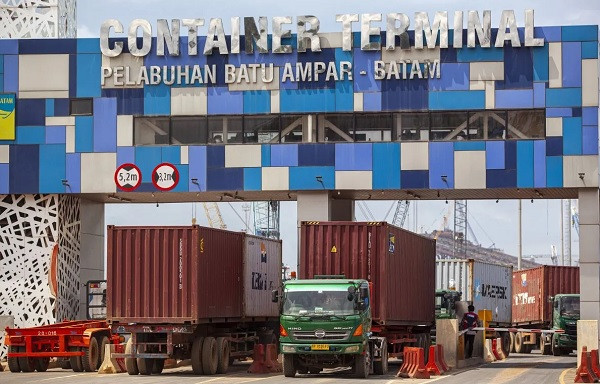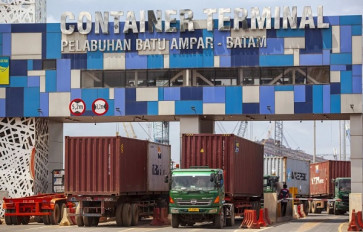Popular Reads
Top Results
Can't find what you're looking for?
View all search resultsPopular Reads
Top Results
Can't find what you're looking for?
View all search resultsThink carefully before maneuvering through US tariffs
Indonesia must tread carefully with a political economy approach to trade diplomacy following US tariffs, maintaining mutually beneficial partnerships and avoiding impacted countries from turning into adversarial competitors.
Change text size
Gift Premium Articles
to Anyone
T
he United States has levied a flat tariff rate of 32 percent on all imports from Indonesia as of April 3, 2025. Around 60 countries are subjected to tariff rates ranging from 10 to 49 percent, affecting practically all US imports, and this has been assessed to negatively impact world trade.
Tariffs are taxes levied to businesses and end consumers for goods imported from another country. These taxes are paid by the importing businesses and do not necessarily impact the exporting country. In the literature on economic statecraft, one of the main purposes of tariffs is to generate uncertainty on both ends of the trade for continued access to the large US consumer market, which could spiral into a global trade crisis.
The uncertainty is worsened by the size of the US consumer market and how much it imports compared to the rest of the world. According to 2023 data, the United States’ nominal gross domestic product (GDP) is approximately US$27 trillion, accounting for about a quarter of the global GDP of $105 trillion. US consumer spending typically constitutes around 68 percent of GDP, suggesting a nominal value of $18.3 trillion.
In 2023, the US imported approximately $3 trillion worth of goods, which accounted for approximately 13 percent of global merchandise trade.
Exports to the US form around 9 percent of Indonesia’s total export volume, but the effects of US tariffs may vary across different industries. Commodities already struggling to remain competitive, such as textiles, or those politically volatile, such as palm oil, will be the most negatively impacted, as they could potentially lose the second-largest export market for Indonesian goods.
The government will have two major problems in the immediate future. First, it remains an open question whether Indonesian goods are still competitive enough so that other countries are willing to purchase them. In an ideal world, we should be able to replace the current export volume to the US, but what will likely happen is that other countries will shift to domestic production, even when it makes more sense to import the same goods.
They will then enact tariffs to discourage companies from relying on global supply chains to be able to safeguard against shocks, despite overwhelming evidence that globalization leads to lower prices for consumers and greater potential for economic growth. This spillover effect can potentially lead to a shrinking global market for exports.


















